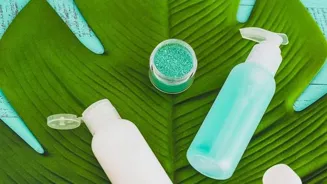Discover the Power of Natural Skincare Ingredients: Unveiling Nature's Secrets for Healthy Skin. Explore the best natural remedies!
In a world overflowing with cosmetic products boasting miraculous results,
many Indians are turning back to their roots, seeking the gentle yet potent power of natural ingredients for skincare. For generations, our grandmothers and mothers have sworn by homemade remedies and traditional practices.
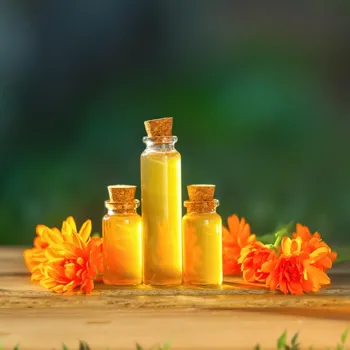
Now, with a surge in awareness regarding chemical-heavy products, natural skincare is experiencing a major revival. But with so many ingredients touted as "natural," how do you separate the gold from the glitter?
Let's dive into the best nature has to offer and learn how to incorporate these treasures into your daily routine.
Turmeric is a skincare hero with anti-inflammatory and antioxidant benefits for glowing skin
Turmeric, or haldi as we lovingly call it, is more than just a kitchen staple; it's a skincare superstar. Its active compound, curcumin, possesses powerful anti-inflammatory and antioxidant properties.

This means it can help soothe irritated skin, reduce redness, and combat the damaging effects of free radicals. Applying a turmeric paste mixed with milk or yogurt can work wonders for acne. Turmeric helps to fade blemishes, brighten skin tone, and even out discoloration.
It also brings a natural glow to the skin. However, it's important to use turmeric in moderation. Excessive usage can sometimes lead to temporary yellow staining of the skin, especially on fairer complexions.
A simple way to avoid this is to mix it with other ingredients such as milk, yogurt, or honey, and to thoroughly rinse it off after the recommended time. Do a patch test before applying turmeric to your entire face. Always ensure that you aren't allergic.
Aloe vera: skincare essential for hydration, healing, and nourishment
Aloe vera, easily recognized by its succulent leaves, is a must-have for any skincare enthusiast. This plant is like a tall glass of water for your skin, offering intense hydration and soothing relief.

Applying fresh aloe vera gel can help relieve sunburn, reduce inflammation from acne or eczema, and accelerate wound healing. Its gel contains vitamins, minerals, and amino acids that nourish your skin and promote healthy cell regeneration.
It is highly recommended to extract the gel yourself from the leaf. This is because the ready made aloe vera gels contain chemicals which will eventually harm the skin. Aloe vera is suitable for all skin types, including sensitive skin.
It can be used as a daily moisturizer, a soothing after-sun treatment, or even as a hair mask to condition your hair. Aloe vera can be a game-changer if applied regularly. The only thing to keep in mind is to do a small patch test on your hand to ensure that you have no allergy to the gel.
Sandalwood in Ayurveda: calms skin, evens tone, absorbs oil, aids relaxation
Sandalwood, or chandan, is highly revered in Ayurveda for its calming and cooling properties. This fragrant wood helps to soothe irritated skin, reduce inflammation, and even out skin tone.
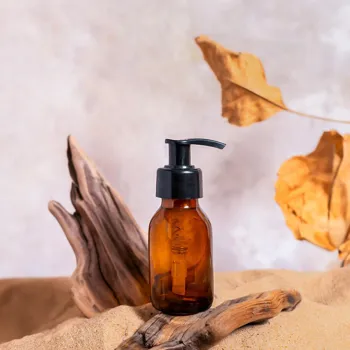
Sandalwood powder is an excellent ingredient for face packs, especially for those with oily or acne-prone skin. It can help absorb excess oil, unclog pores, and leave your skin feeling refreshed.
In addition to its skincare benefits, sandalwood's aroma has a calming effect on the mind, making it a perfect addition to your nighttime skincare routine. Look for pure sandalwood powder or essential oil derived from sustainable sources.
Mix it with rose water to create a soothing paste and apply it to your face and neck for a revitalizing experience. Sandalwood has many curative health benefits. Some people might be allergic to sandalwood. In such cases, reduce its frequency of use.
Neem: potent remedy for acne-prone skin, but use with caution
Neem, a tree with potent medicinal properties, is a boon for acne-prone and oily skin. Its antibacterial and antifungal properties help combat acne-causing bacteria and prevent breakouts.
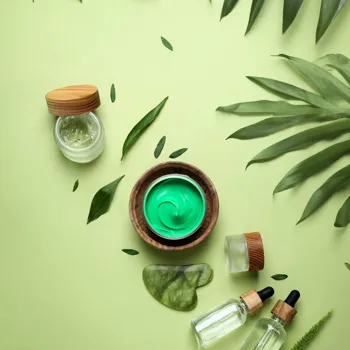
Neem oil can be applied directly to pimples or diluted with a carrier oil like coconut or almond oil for broader application. Neem leaves can also be used to make a purifying face mask or added to bath water for its antiseptic benefits.
Neem helps to remove impurities, detoxify the skin, and promote a clear complexion. While neem is generally safe, it has a strong smell that some may find unpleasant. It's also important to use it in moderation, as excessive use can dry out the skin.
Always perform a patch test before applying neem to your entire face. The beauty industry is increasingly recognising Neem. It is one of the most potent medicine in Ayurveda.
Coconut oil benefits skin but may clog pores for some
Coconut oil is a versatile ingredient that can be used for various skincare purposes. It's a rich source of fatty acids, which help to moisturize and nourish the skin. Coconut oil can be used as a makeup remover, a body moisturizer, or even as a hair conditioner.
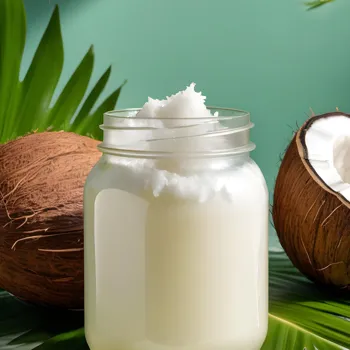
It's particularly beneficial for dry and dehydrated skin, leaving it feeling soft and supple. However, coconut oil can be comedogenic for some people, meaning it can clog pores and lead to breakouts. If you have oily or acne-prone skin, use it sparingly or avoid it altogether.
Opt for fractionated coconut oil, which is less likely to clog pores. It is always recommended to use only pure, virgin coconut oil. It is advisable to do a small patch test before applying to your entire face.
If you see pimples or have any allergic reaction, reduce or stop the usage of coconut oil.
Rose water benefits skin with natural properties, hydrating and balancing pH
Rose water, distilled from rose petals, is a gentle and fragrant toner that helps to balance the skin's pH level, reduce redness, and hydrate the skin. It can be used as a refreshing face mist throughout the day or applied after cleansing to prepare the skin for moisturizer.

Rose water also has anti-inflammatory properties, which can help soothe irritated skin and reduce the appearance of pores. Look for pure rose water derived from high-quality roses and free from artificial fragrances or preservatives.
You can even make your own rose water at home by simmering rose petals in water and straining the liquid. Rose water smells amazing. Be wary of rose water that contains parabens or many other preservatives. Make sure to check the ingredient list to confirm your product is clean.
